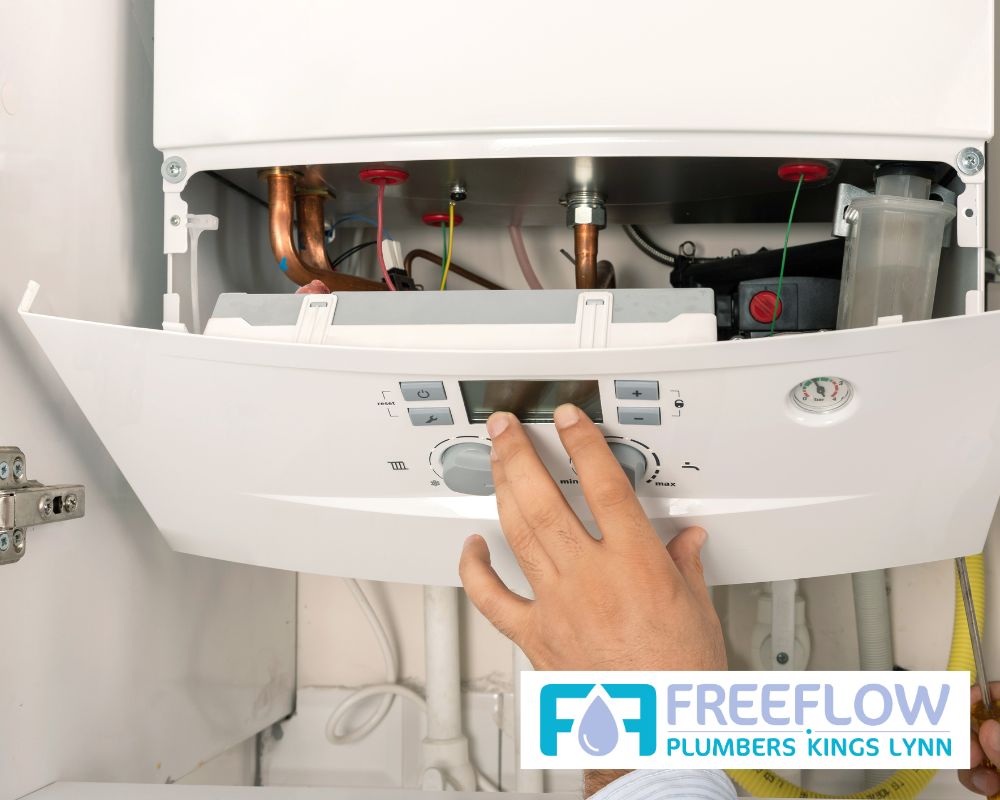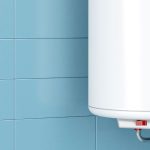Step into the shoes of a homeowner getting ready for their boiler installation day in the UK. You may be feeling a bit anxious about the unknown, but rest assured that this guide will provide you with all the details you need to know.
From the initial assessment to post-installation steps, we’ll give you the knowledge and confidence to successfully manage your home’s heating system. We’ll take you through every stage of the process with technical accuracy and helpful clarity.
With this comprehensive guide, you can be sure to make it through the installation day with ease.
Initial Assessment and Consultation
During the initial assessment and consultation, you will have the opportunity to discuss your specific needs and preferences with the boiler installation team. This important step allows the team to evaluate your current boiler system through a thorough boiler inspection. They will analyse its condition, identifying any potential issues or concerns that could affect the installation process.
Furthermore, an energy efficiency assessment will be carried out to determine how efficient your current system is and if there are possibilities for improvement. This assessment ensures that the new boiler meets your energy efficiency requirements while maximising cost savings in the long term.
Once these assessments are complete, you will proceed to prepare for installation by considering factors such as space availability and any necessary modifications to existing infrastructure.
Preparing for Installation
Before installation, it is essential to ensure that the area is clear of any obstacles. Here is a pre-installation checklist to help you prepare for the upcoming boiler installation:
- Find a reliable installer: Conduct research and choose a certified and experienced installer with positive customer reviews.
- Confirm the installation date: Work with the installer to determine a suitable date for the installation process.
- Ensure access to utilities: Make sure there is easy access to gas, electricity, and water connections for a successful installation.
- Clear the space: Remove any furniture or items that may obstruct access to the boiler location.
- Protect delicate surfaces: Place protective sheets over nearby carpets or floors to prevent any damage during installation.
By following this pre-installation checklist, you will be well-prepared for a successful boiler installation.
Now, let us move on to discussing ‘the installation process’ in more detail.
The Installation Process
Now that you have completed the pre-installation checklist, let’s move on to the steps involved in the installation process.
The installation timeline for your boiler may vary depending on factors such as the complexity of your system and any additional components required. Typically, a boiler installation takes approximately one to two days.
During this time, the engineers will begin by preparing the necessary equipment for the installation. This involves connecting pipes, installing valves, and ensuring proper ventilation. They will also integrate any necessary controls or thermostats into your existing heating system.
Once all the equipment is prepared, they will proceed to install and secure the new boiler in place.
Now that these initial steps are complete, we can now discuss the next steps in terms of post-installation procedures.
Moving on to post-installation steps:
After the installation process of your new boiler has been completed…
Post-Installation Steps
Once your boiler has been installed, there are essential post-installation steps to be taken.
It is essential to check for any leaks and ensure the correct ventilation to avoid any potential risks.
Moreover, you should programme the thermostat and controls to your desired settings for energy efficiency and comfort.
We also provide you with detailed information on maintenance procedures and warranty coverage to ensure you can properly care for your new boiler and deal with any potential issues.
Checking for leaks and ensuring proper ventilation
During the boiler installation, the engineer will be analysing for any leaks and ensuring suitable ventilation. This is an important step in maintaining the efficiency and safety of your boiler system.
The engineer will carefully inspect all connections, fittings, and pipes to detect any potential leaks. They will also ensure that the ventilation requirements are met to prevent any accumulation of harmful gases like carbon monoxide.
Proper ventilation is crucial for efficient operation and to reduce the risk of accidents or health hazards. The engineer will assess if there is sufficient airflow around the boiler, taking into account factors such as clearances, flue positioning, and air supply openings. They may also recommend additional measures such as installing vents or fans to enhance ventilation if necessary.
After completing this essential check, the engineer will proceed to program the thermostat and controls without interruption in order to maximize efficiency and comfort in your home.
Programming the thermostat and controls
The engineer will begin programming the thermostat and controls to maximise efficiency and comfort in your home. Here’s what you can expect:
- Initial evaluation: The engineer will evaluate your heating system, taking into account factors such as insulation levels, room usage patterns, and climate conditions.
- Thermostat setup: Based on the evaluation, the engineer will set up your thermostat settings to ensure optimal energy usage without sacrificing comfort. They may modify temperature setpoints, enable scheduling features, and program setback periods for times when you’re away from home.
- Troubleshooting advice: As part of the programming process, the engineer may give you advice on troubleshooting common thermostat issues. This could include instructions on resetting the thermostat or checking for faulty wiring connections.
By programming your thermostat and controls effectively, you can maximise energy savings while sustaining a comfortable living environment in your home.
Now let’s move on to providing information on maintenance and warranty coverage for your new boiler installation.
Providing information on maintenance and warranty
Now that you have successfully programmed your thermostat and controls, it is essential to understand the maintenance and warranty aspects of your new boiler system.
Regular maintenance is necessary to ensure optimal performance and durability of your boiler. To keep its efficiency, it’s recommended to follow a routine maintenance schedule provided by the manufacturer. This may include tasks such as cleaning or replacing filters, checking for leaks, and inspecting the overall condition of the system.
Also, be familiar with the warranty coverage offered by your manufacturer or installer. Knowing what is covered under warranty will help you if any issues arise within the specified period. Make sure to adhere to any terms or conditions outlined in the warranty documentation.
Transition: Having equipped yourself with information about maintenance and warranty coverage, let’s move on to learning some vital safety and maintenance tips for your boiler system without delay.
Safety and Maintenance Tips
Make sure to follow safety and maintenance tips when installing your boiler in the UK. It is essential to prioritise safety during the installation process to avoid any accidents or damage.
Here are some key precautions to take:
- Ensure proper ventilation: Sufficient ventilation is essential for the secure use of your boiler. Make sure the area where you install it has enough fresh air supply.
- Regularly inspect for leaks: Check for any signs of leaks, such as water puddles or abnormal smells. Take action on leaks promptly to prevent additional harm and potential risks.
- Schedule regular maintenance: Create a maintenance checklist and follow it. Professional servicing on a regular basis ensures optimal operation and extends the lifespan of your boiler.
- Keep combustible materials away: Avoid placing combustible items near the boiler, reducing the chances of fire.
Following these safety precautions and taking care of your boiler properly will help ensure its durability while keeping you and your property secure.
Frequently Asked Questions
How long does the entire boiler installation process usually take?
The boiler installation process typically takes anywhere from one to three days, depending on various factors. Complexity of the system, type of boiler being installed, and any additional work needed can all influence the installation time frame.
For instance, if existing heating systems need to be removed or upgraded it may extend the duration. Unexpected issues or complications can also affect the timeline.
Is it necessary to have a building permit or any other legal documentation for a boiler installation?
When it comes to boiler installation, having the correct legal documentation is crucial. UK regulations stipulate that a building permit is required for such installations to ensure compliance with safety and regulatory standards.
Failure to obtain the permit can result in substantial fines or other legal consequences. A recent example involves a homeowner who had to pay penalties for installing a boiler without the required paperwork.
Therefore, it is important to consult your local authorities before commencing any installation.
Are there any specific qualifications or certifications that the installation team should possess?
To ensure a successful boiler installation, the installation team should have the required qualifications and certifications. This will demonstrate their expertise in handling intricate installations.
Seek a plumbing contractor who possess relevant qualifications such as Gas Safe registration, which confirms their ability to work with gas appliances. Additionally, certifications such as NVQ Level 2 or 3 in Plumbing and Heating will indicate their proficiency in boiler installations.
Hiring a team with these specific qualifications and certifications will provide you with confidence in their ability to complete the job securely and efficiently.
What are the common signs that indicate a boiler needs replacing rather than repair?
Common signs that indicate a boiler needs replacing instead of repair include:
- Frequent breakdowns
- High repair costs
- An older age (typically over 15 years)
Other indicators to look out for include:
- Inefficient heating
- Inconsistent temperature control
- Strange noises
If you observe any of these signs, it might be time to consider a boiler replacement. Keep in mind that the cost of a replacement can vary depending on factors such as the type of boiler and installation needs.
How can I determine the appropriate size and capacity for a new boiler for my home?
To determine the appropriate size and capacity for a new boiler, you must analyse the heating requirements of your home. This includes considering factors such as square footage, insulation levels, and the number of occupants.
It’s essential to select a boiler with a high energy efficiency rating. This will help you achieve optimal performance and cost savings.
Consulting an expert is crucial in correctly assessing these factors and choosing the ideal boiler for your home.
Thanks for reading, please browse some of other posts or check out our services below:












